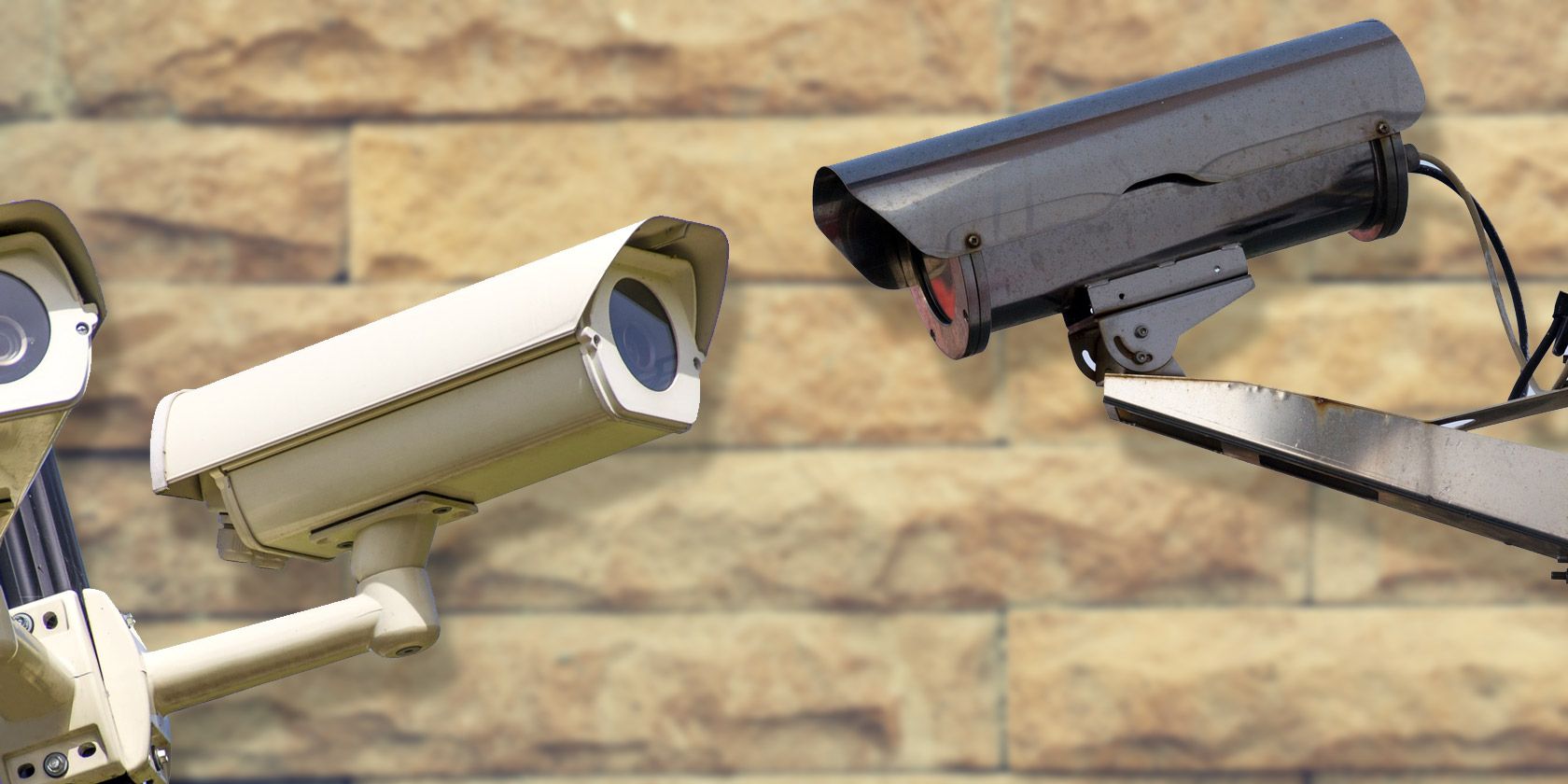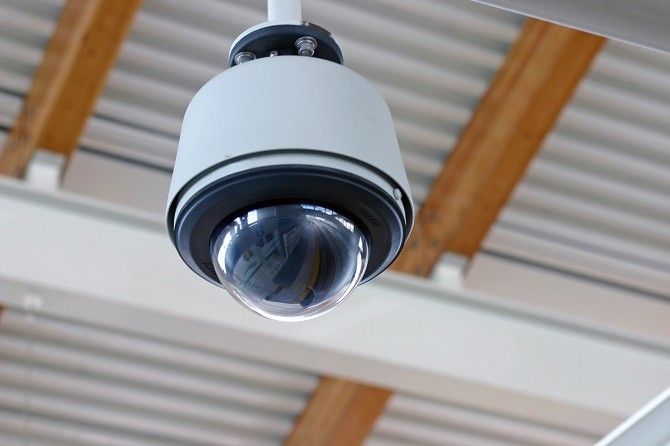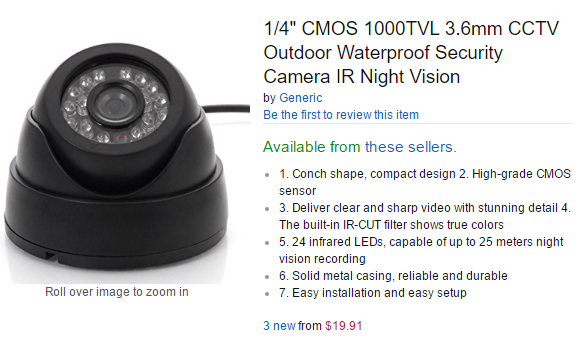You need to make your home as unattractive as possible for would-be thieves. Lots of outside lighting, a 250-pound guard dog, a fool proof alarm system, and an extensive network of security cameras will all help keep the bad guys away.
But even the most expensive security cameras won't be much of a deterrent if they're badly installed.
In this article, I'm going to explain five of the most common mistakes people make when setting up their security cameras. Hopefully, it will help you avoid making the same errors.
1. Hiding Your Cameras
Your outdoor cameras need to be visible from the street. A lot of people make the mistake of trying to conceal them.
If you conceal them, you're removing the deterrent factor. Sure, you might catch a criminal on film without them knowing, but your possessions could be long gone. The police won't be able to do much with some grainy footage of a teenager in a balaclava walking off with your TV.
Make it obvious that your home is monitored. Install the cameras in visible places that are hard-to-reach. Put up a sign outside your front gate letting the world know that your property is under surveillance. You want every criminal in town to know your home is a fortress.
2. Positioning Your Cameras
Obviously, you need to make sure your camera is covering the areas you want monitoring. But locating the ideal spot extends beyond such simple interpretations.
Cameras are only effective if they can provide 24/7 coverage. For example, direct sunlight in the afternoon could render the camera's output useless. Rain or snow can block the lens and make the footage unusable. Tree branches might obscure the camera's line-of-sight on a windy day.
Perhaps most important of all, if you have an internet-connected smart system, make sure the location has a strong and consistent Wi-Fi signal!
Put your camera in a sheltered area that's in the shade all day. Check, double check, and recheck the live feed in a variety of weather conditions to make sure the footage will be adequate if it's ever needed.
3. Buying Cheap Systems
If you've decided to install a home security system and you're starting to browse Amazon or eBay to see what's available, you'll inevitably stumble across some cheap systems.
On first inspection, they sound appealing -- why pay four or five times the price for the same thing? A video output is a video output, right?
Wrong.
Not all security cameras are born equal. Cheap cameras might have a poor resolution or night vision (or even no night vision). Perhaps they won't have recording capabilities and will instead only allow live monitoring. Some won't connect to Wi-Fi so you won't be able to view them when you're away from home.
Of course, you need to spend within your means, and something is always going to be better than nothing. But if you're serious about your home security you need to make sure at least some basic requirements are met.
Do your research: check other users' feedback, read independent review sites, look on YouTube for examples of their video output. Don't waste your money unless you're certain your investment will fulfill your needs.
Did you know you could use your mobile device too? Here's how to use an iPhone as a webcam.
4. Passwords
If you've got an internet-connected system, you'll be able to access it when you're off premises. That's great, it gives you peace of mind and means you can quickly alert your neighbors or the police if you see anything suspicious going on.
But beware. You'll need a password to access the live feeds remotely. Often, the camera will provide you with a pre-set password such as "password", "admin", or the manufacturer's name.
If your password falls into that category, you need to change it immediately. Failure to do so could let criminals access your system. That allows them to learn about the layout of your property and your daily routines. You're making yourself an easy and prime target.
All the usual rules about creating secure passwords apply.
5. DIY Installations
Getting a professional to install your system is an easy way to avoid a lot of the pitfalls I've discussed in this article.
They will ensure the cameras are in the correct location and that they are physically well-installed. You don't want a camera to fall off the wall in a strong storm.
Reputable companies will also offer a warranty. If you find the cameras aren't functioning as expected, they will come back to fix the issue. If you've done a DIY installation and something goes wrong, you bear the responsibility.
In the United States, the most reputable companies are members of the Electronic Security Association. They must adhere to a strict Code of Ethics and Standards of Conduct.
Give Us Your Tips!
I've given you five tips that'll put you on the path to a safe and reliable set up, but home security veterans will have lots more useful pointers they can add to my list.
I'd love to hear your tips and opinions. Have you experienced some security camera horror stories that your fellow readers can learn from? Have you installed your own system and learned some valuable lessons?
You can get in touch with your advice, ideas, and suggestions in the comments box below.



